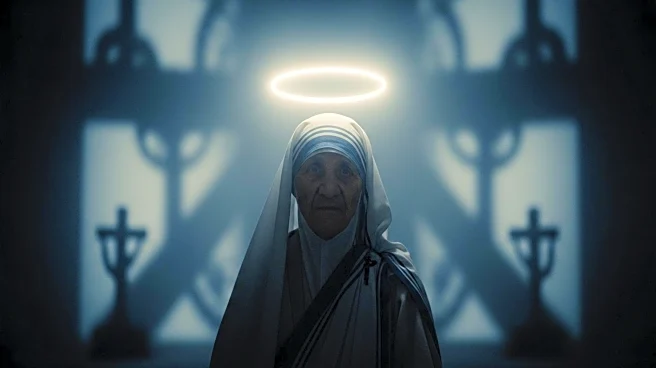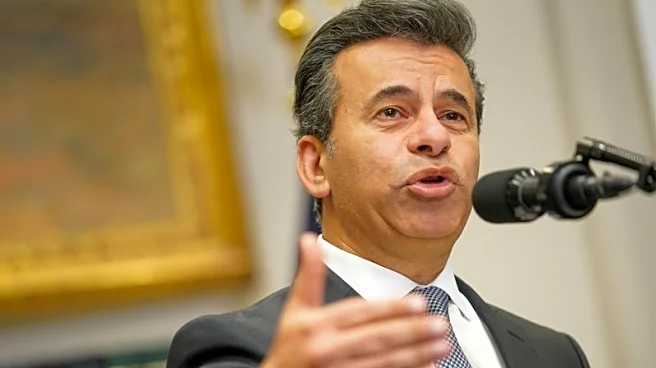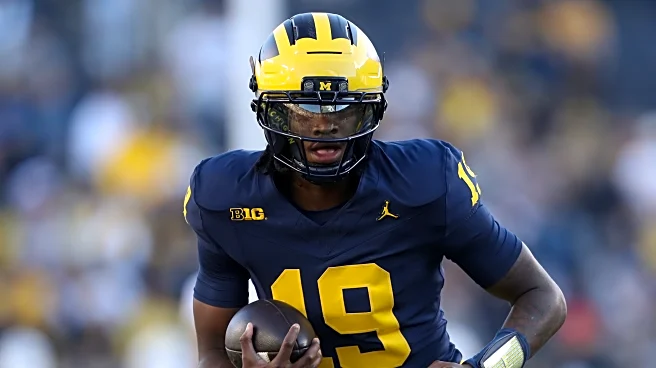What is the story about?
What's Happening?
Teona Strugar Mitevska's film 'Mother', premiering in Venice, features Noomi Rapace as Mother Teresa, aiming to demystify the saintly image of the Nobel Peace Prize winner. The film explores Teresa's humanity, including her vulnerabilities and imperfections, rather than her greatness. Mitevska, a Macedonian director, emphasizes the importance of showing historical female figures in a different light, challenging traditional narratives. The film is set in 1948, focusing on Teresa's time in Kolkata as she prepares to leave the monastery to create a new order. Mitevska's portrayal of Teresa as a 'punk' figure who defied rules is intended to inspire women to embrace their freedom and individuality.
Why It's Important?
The film 'Mother' offers a fresh perspective on Mother Teresa, a figure often revered for her saintly qualities. By highlighting her human side, the film challenges the conventional portrayal of female historical figures, encouraging a broader understanding of their complexities. This approach may provoke discussions on the representation of women in history and media, potentially influencing future portrayals. Additionally, the film touches on controversial aspects of Teresa's legacy, such as her stance on contraception and abortion, which remain relevant in contemporary debates on women's rights. Mitevska's work underscores the importance of revisiting historical narratives to reflect progress and inspire change.
What's Next?
The film's release is likely to spark conversations among religious communities and audiences worldwide, given its unconventional portrayal of a canonized figure. Mitevska anticipates reactions from various stakeholders, including religious groups, who may be shocked by the film's depiction of Mother Teresa. The film's distribution in cinemas globally will facilitate these discussions, potentially leading to a reevaluation of Teresa's legacy and broader societal attitudes towards historical female figures. Mitevska's approach may also influence future filmmakers to explore similar themes, contributing to a shift in how women's stories are told.
Beyond the Headlines
Mitevska's film not only challenges perceptions of Mother Teresa but also raises questions about the role of women in religious and historical contexts. By portraying Teresa as a complex, multifaceted individual, the film encourages audiences to reconsider the narratives surrounding female saints and leaders. This could lead to a broader cultural shift in how women are perceived and represented, both in historical accounts and contemporary media. The film's emphasis on freedom and individuality aligns with ongoing discussions about gender equality and women's empowerment, highlighting the need for diverse and nuanced portrayals of women in all spheres.
















